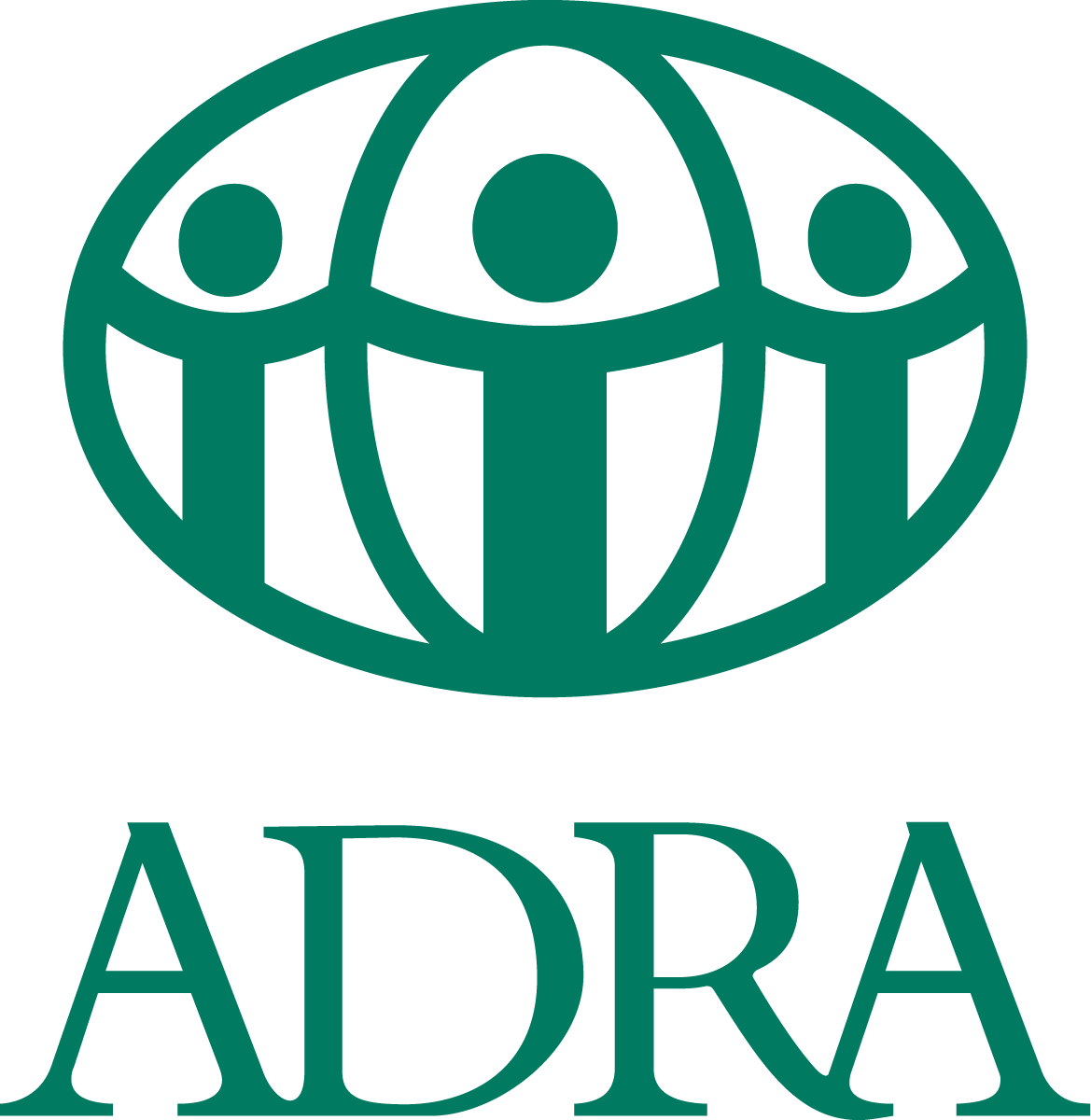Workshop: Piloting Interherd+ Database Management System
Dr. James Hank, Director of PAN services, University of Reading, UK, joined ADRA’s TERAI project team on a visit. He was there to gather information, provide expertise, and commence the activities for the Information Management aspect of the TERAI Project. Currently, the local governments in the project area manually record data from registered cow and buffalo farms with more than five animals. Information such as the number of animals, approximate annual milk production, vaccination, and disease incidence are actively tracked. The government also provides semen for artificial insemination of cows, and buffalos provided by the National Livestock Breeding Office – Pokhara.
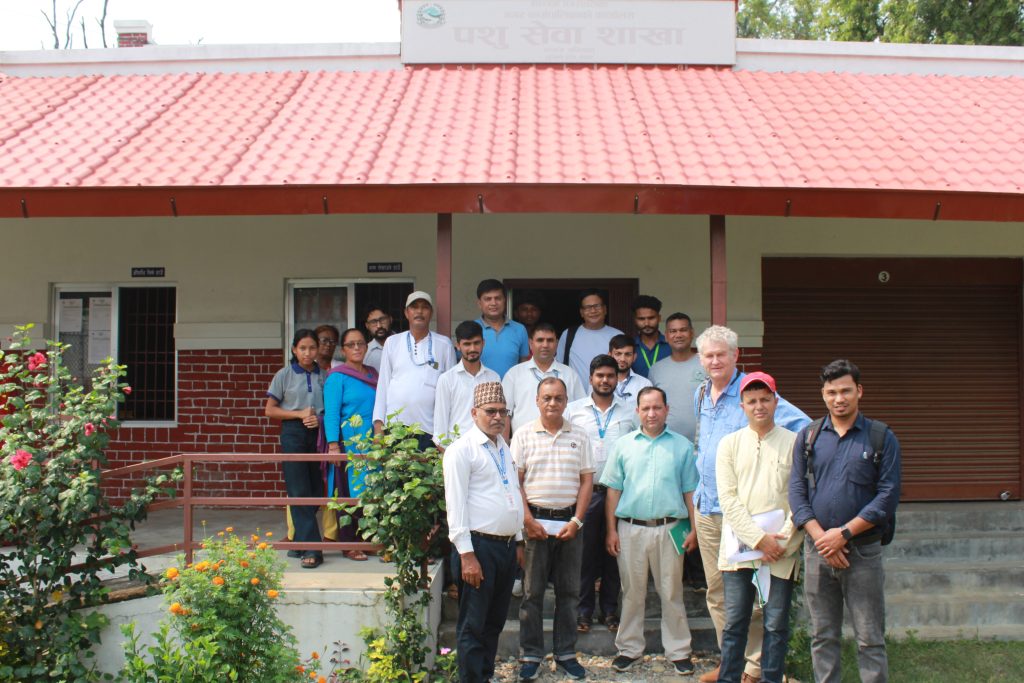
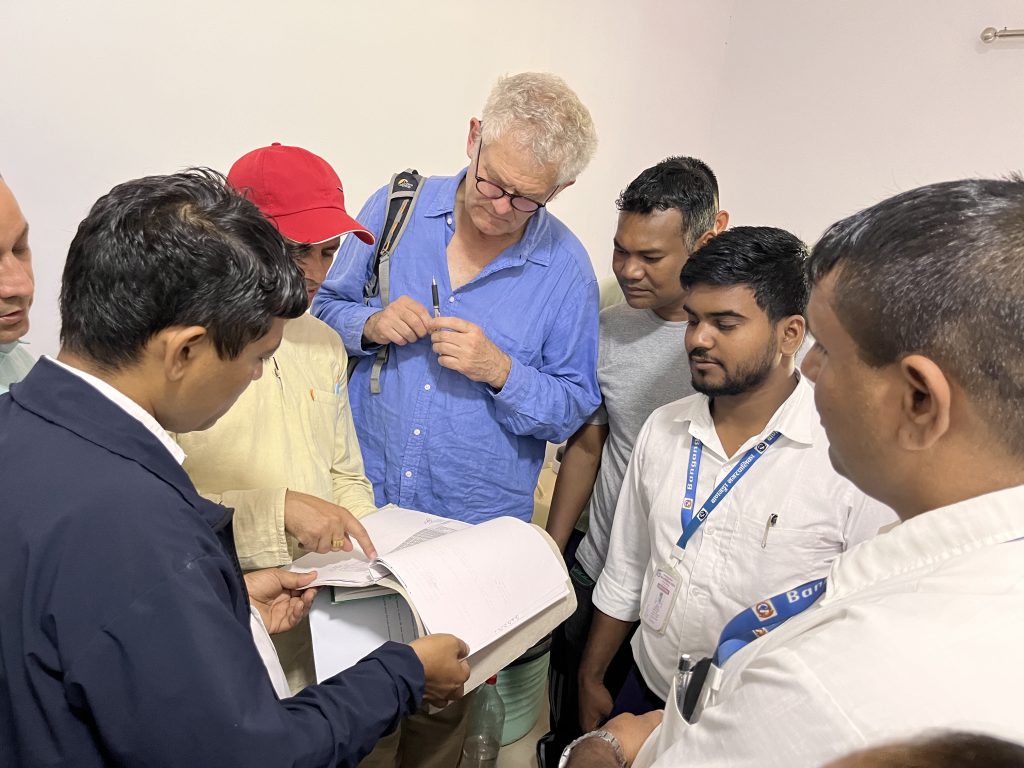
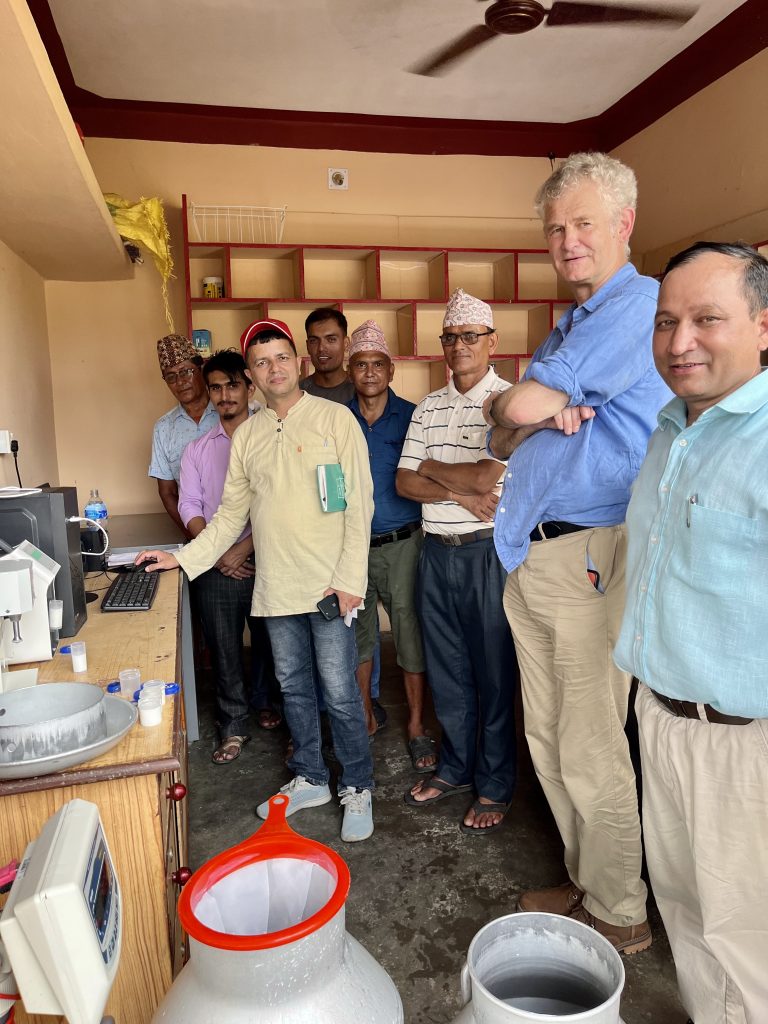
As part of the TERAI project, ADRA has engaged with the local government to pilot the use of improved information management systems to see how the data can not only be a record as it is now but live data that informs on program success, milk production, and disease per animal and breeding. Dr. Hank commented that when visiting the Livestock Services Section at the Municipal office, it was clear that many of the mechanisms are already in place. They have the organization and interest in managing data. By establishing more data collection points and using software as a pilot, they can manage information in a way that will be more useful to inform policy, programs and track and trace livestock issues such as milk production, productivity, breeding, and disease management.
During his visit, Dr. Hank met with the local government – Banganga Municipality of Kapilvastu district in Lumbini province and met smallholder farmers in Kanchan Rural Municipality with one to two cows or buffalo. He also met with Naba Kiran Agriculture cooperative – Sainamaina Municipality engaged in milk collection from smallholder farmers; they test the milk at collection and pay farmers a fair price based on the fat content of the milk. The group visited potential model farms, which will be connected to the smallholder farmers for breeding and provision of forage purposes. Dr. Hank then spent four days leading a municipal workshop in Butwal followed by a national-level workshop in Kathmandu to introduce Interherd + Database Management System and work with various players to proceed with the pilot.
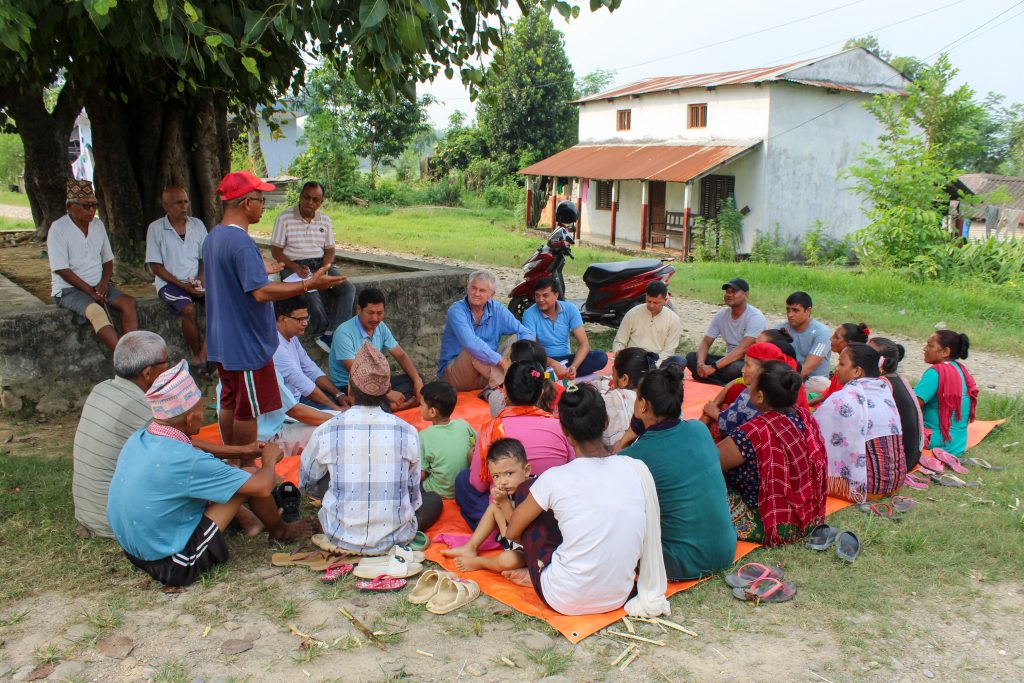
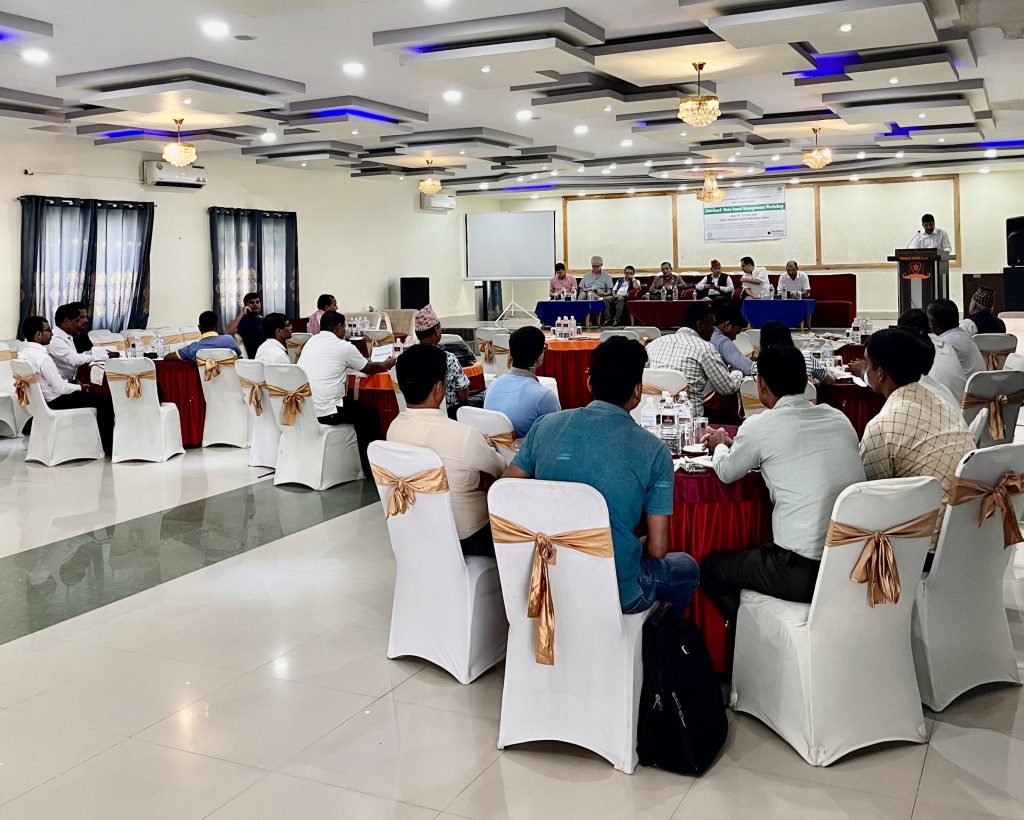
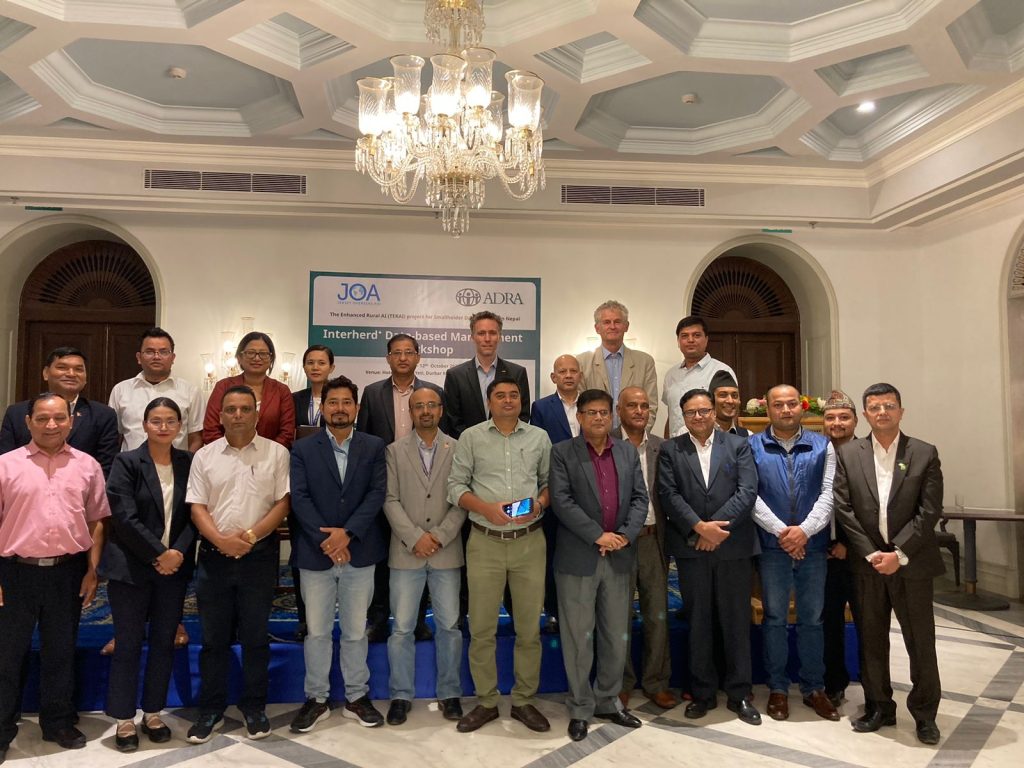
This activity is one aspect of the 4-year TERAI project with JOA (Jersey Overseas Aid) which ultimately aims to increase the livelihood of the thousands of smallholder dairy farmers by improving their animal care techniques, leading to higher milk yields, providing training on marketing and enterprise management, developing smallholder farm groups and developing the milk market around them to enable access into the milk market. During the visit, it was excellent to see how improved livestock care and nutrition are already leading to increased milk yields and income for the primarily women smallholder farmers from marginalized communities. They were proud of their learning and achievement and eager to grow their small businesses. The project is also strengthening the information systems around Livestock Management through the work Dr. Hank is doing, and later introducing pure Jersey cow semen at the local level, making it more available to smallholder farmers, leading to further improved milk yields and income. This increase will also benefit the general milk market to help meet the high demand for milk.
